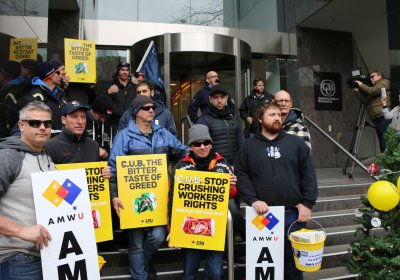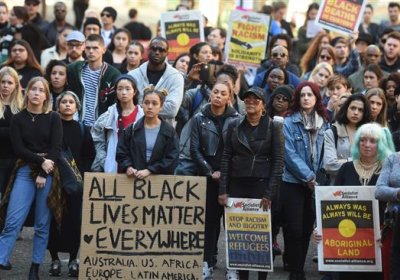1108
Production and distribution workers at Carlton & United Breweries' (CUB) Abbotsford plant in Melbourne brought the site to a standstill for three hours on August 25, threatening further action if 55 sacked workers were not reinstated. Two hundred members of United Voice and the Construction Forestry Mining and Energy Union (CFMEU) at the brewery held a stop-work meeting to condemn CUB's sacking of its maintenance staff and raised concerns about the impact this has had on safety standards.
After months of protests, mass meetings and failed talks with the University of Sydney administration, about a dozen Sydney College of the Arts (SCA) students started an occupation of the Dean's office at its Callan Park campus in Rozelle on August 22.
- Previous page
- Page 3
- Next page











